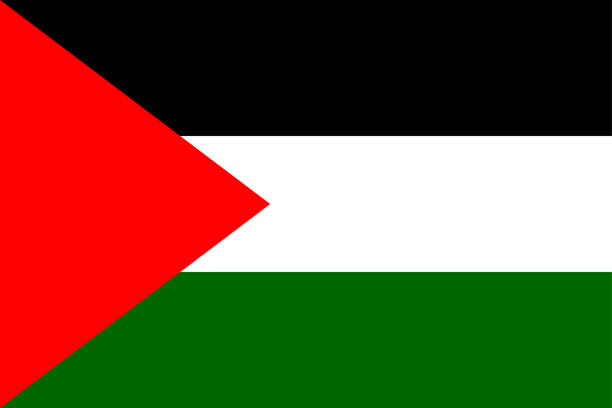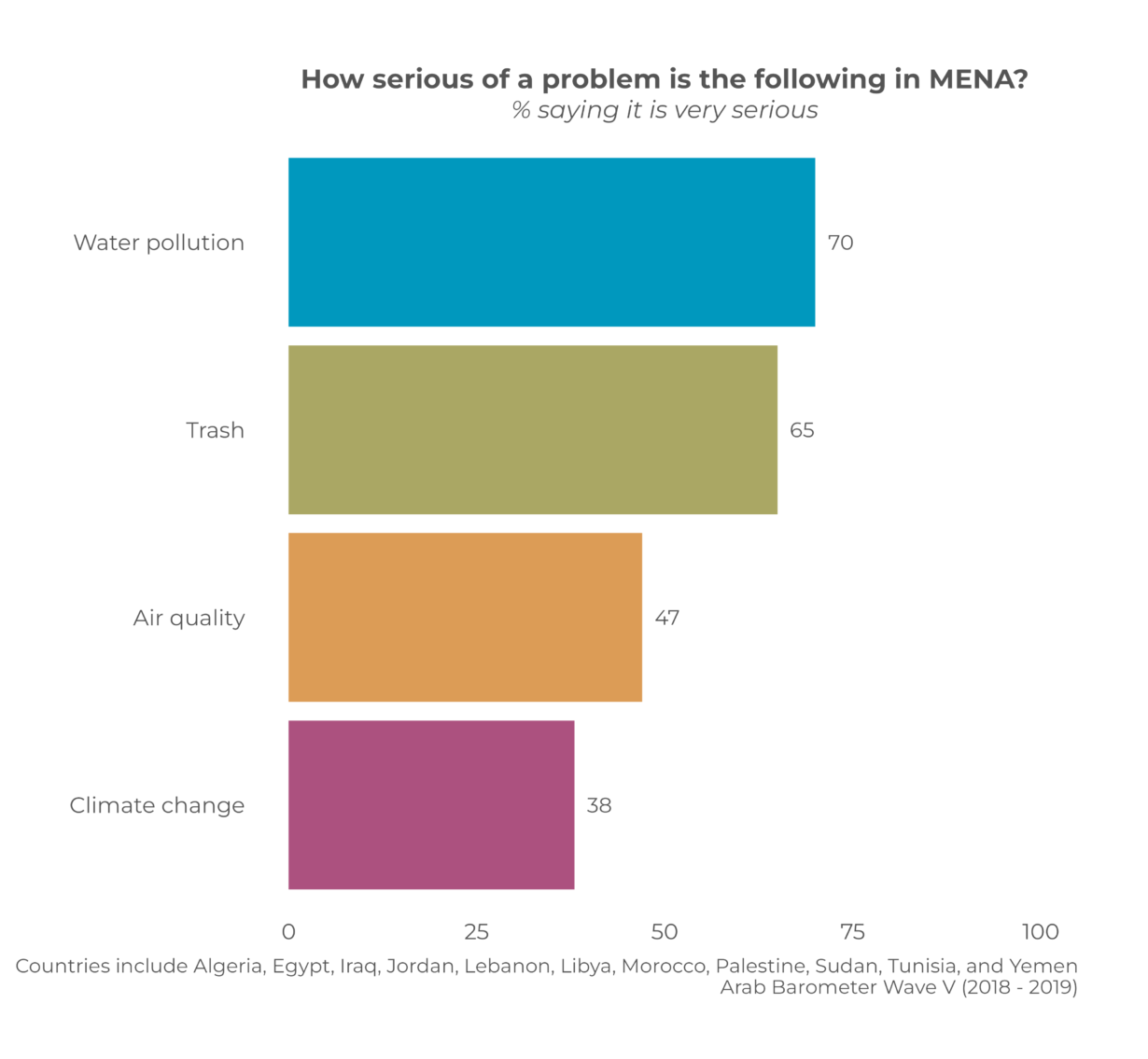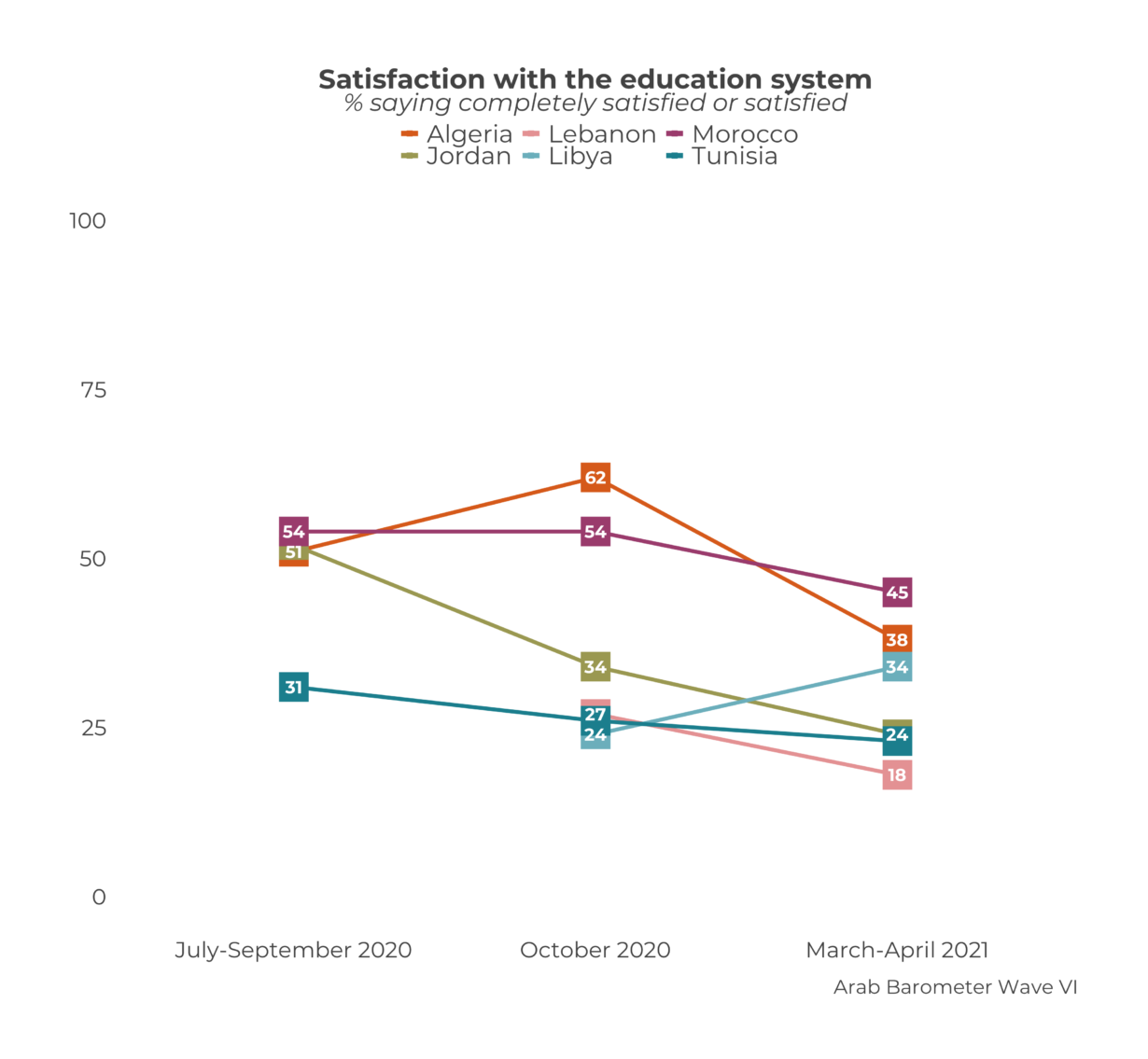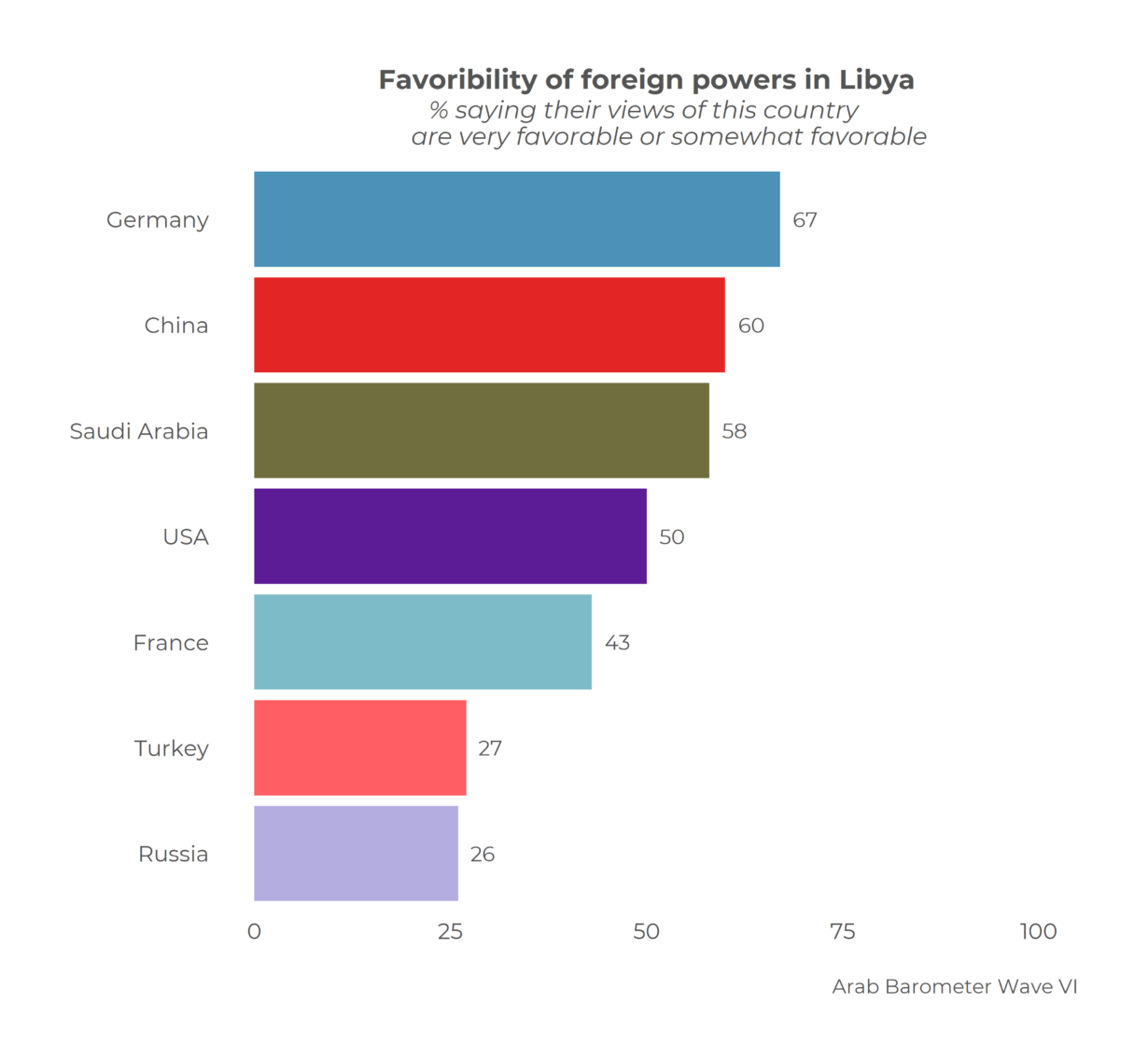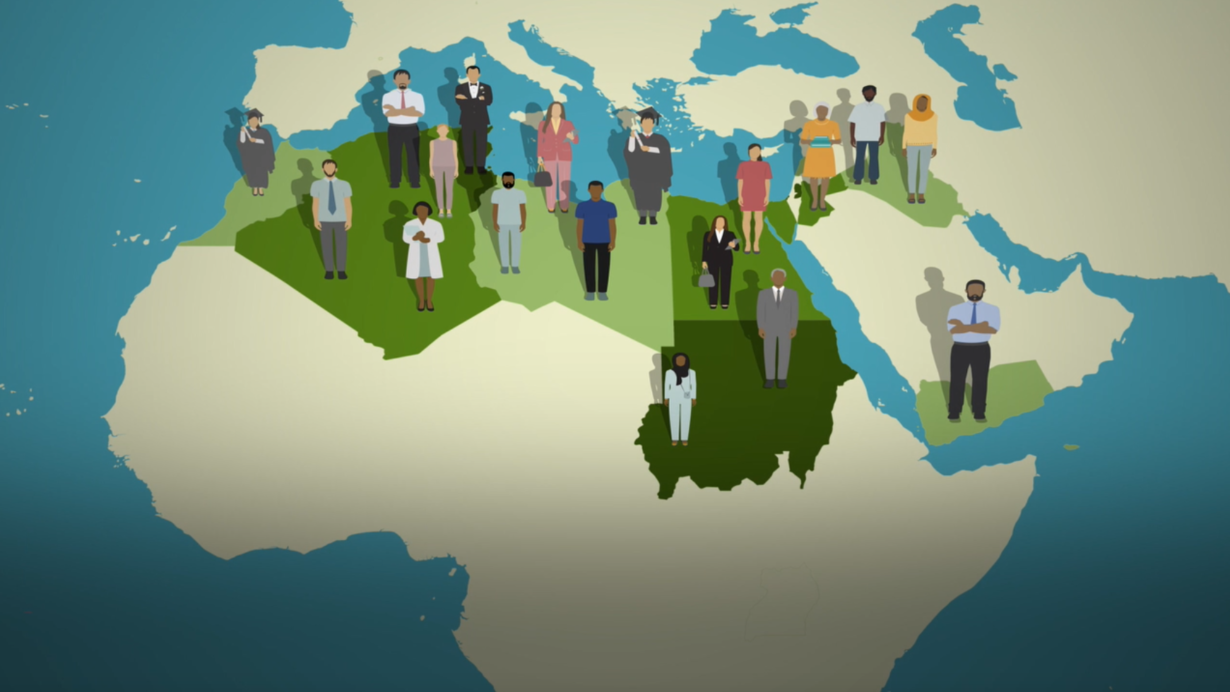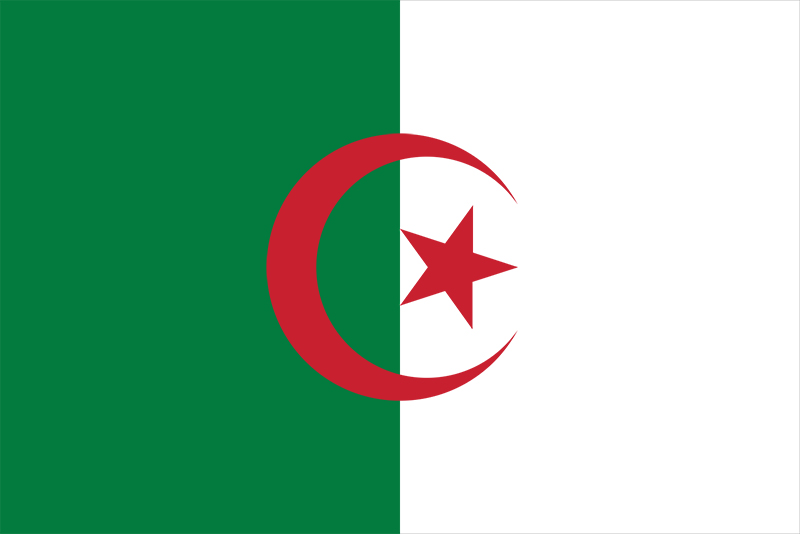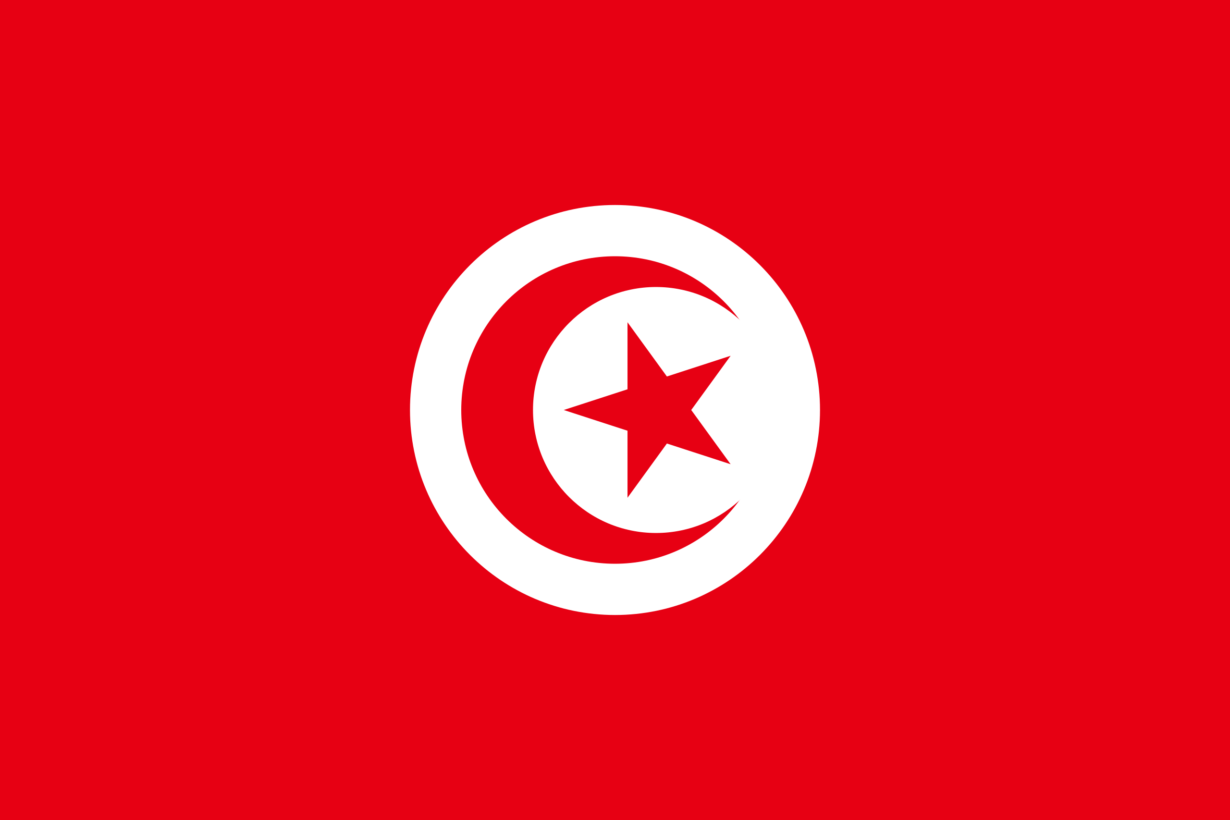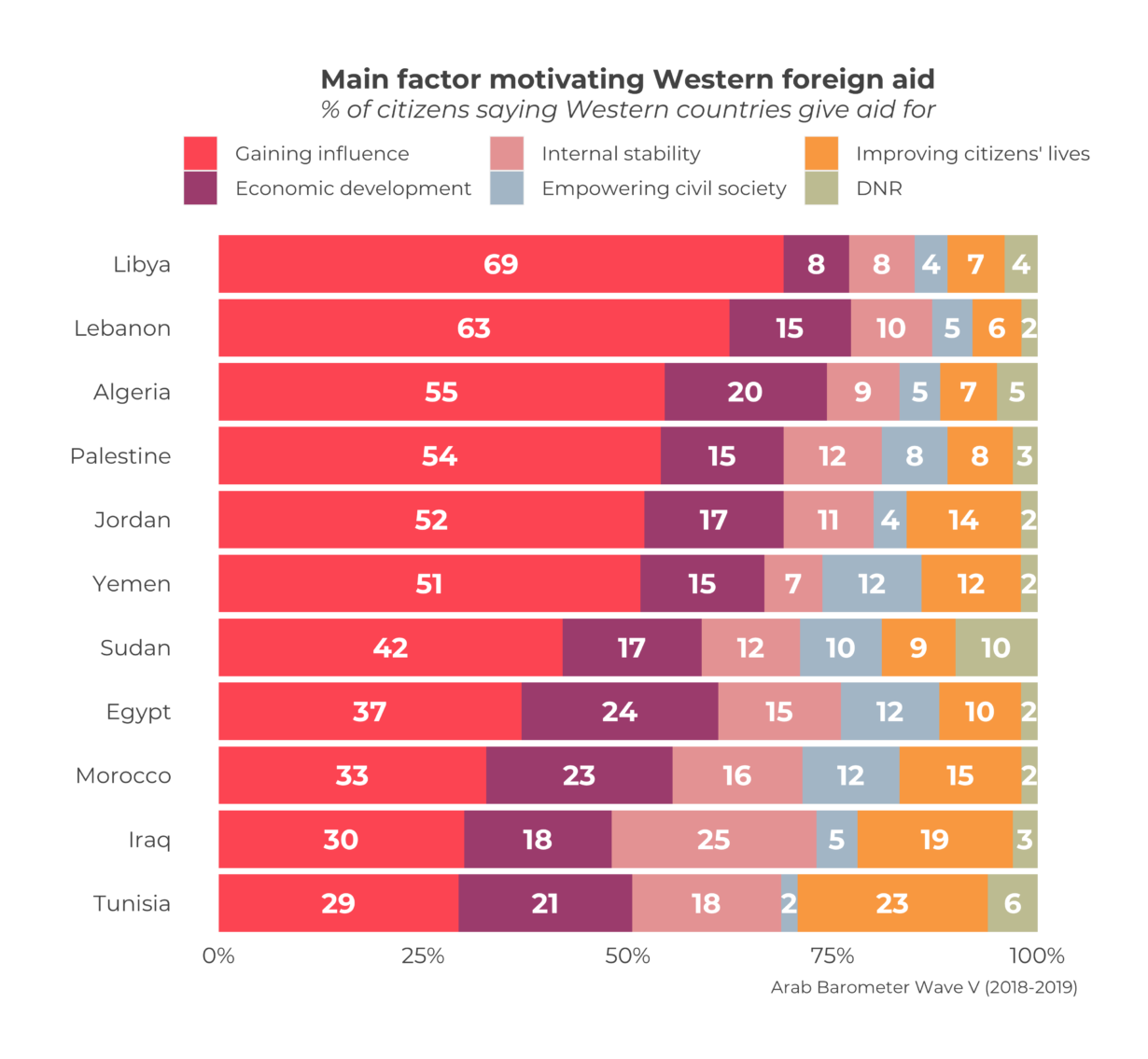The public favors a neutral stand in the Russian war against Ukraine even as slightly more people blame Russia for starting the war; closer to home, Israel-PA “confidence building measures” are increasingly viewed favorably even as two-thirds share the view that Israel is an apartheid state; and domestically, ten months after the Israel-Hamas War, Fatah’s popularity returns to its pre-May…
What MENA Citizens Think About The Environment in 11 Graphs
From 28 to 31 March 2022, the inaugural Middle East and North Africa Climate Week 2022 in Dubai, UAE will bring together key stakeholders to take the pulse of climate action in the region, explore climate challenges and opportunities to build forward from the pandemic and showcase ambitious solutions. Arab Barometer’s 2018-2019 wave of surveys found that citizens across MENA…
What Arabs Think About Education During The COVID-19 Pandemic
On the occasion of the International Day of Education on January 24th, we would like to share nine key findings on what MENA citizens think about education in their countries. This data is based on our most recent sixth wave of surveys that was conducted in seven Arab countries during the COVID-19 pandemic, between July 2020 and April 2021. 1-…
Taking Tunisians’ Pulse : Key findings from AB6 survey 2020-2021
The July 2021 political events in Tunisia were not entirely unexpected given the country’s ongoing challenges on a number of fronts. Deteriorating economic conditions combined with the high death toll from the COVID pandemic crystalized failure of the political system to address the basic problems facing ordinary Tunisians. The failure to undertake needed reforms over the past decade produced a…
Fragile Popularity: Arab Attitudes Towards China
In recent years, China’s engagement in the Middle East and North Africa (MENA) has been rapidly increasing. At least 17 MENA countries have signed agreements as part of its Belt and Road Initiative (BRI). Meanwhile, in response to the COVID pandemic, Chinese vaccines have been secured by a number of countries across the region while China has promised aid to…
Libya’s Pulse on the Eve of the Libya Stabilization Conference
The Libya Stabilization Conference, hosted in the Libyan capital, Tripoli, on October 21, 2021 is the first Libya-related international conference to take place inside the war-torn country since civil war broke out in 2014. According to the Libyan foreign minister, Najla al-Mangoush, the conference will focus on two tracks: the first is security and the second is economic recovery. The…
Across the Maghreb, support for all outside actors, including China and Russia, remains low
This piece is part of a four-part series published by the Middle East Institute in cooperation with Arab Barometer analyzing the results of the sixth wave of the Arab Barometer surveys. In recent years, China and Russia have gradually increased their influence in the Maghreb. The two powers, relative newcomers to the regional scene compared to Europe and the U.S., have…
Algeria: Amid concerns about the pandemic and its economic impact, some optimism for the future
This piece is part of a four-part series published by the Middle East Institute in cooperation with Arab Barometer analyzing the results of the sixth wave of the Arab Barometer surveys. The Arab Barometer’s survey results for Algeria paint the picture of a population understandably worried about the COVID-19 pandemic and its economic impact. In surveys carried out in the country…
Facing COVID-19 in Morocco: Satisfaction with the economy does not preclude the need for more jobs and anti-corruption efforts
This piece is part of a four-part series published by the Middle East Institute in cooperation with Arab Barometer analyzing the results of the sixth wave of the Arab Barometer surveys. As soon as the first signs of the health crisis caused by COVID-19 appeared in North Africa, Morocco took swift and decisive action, implementing health, economic, security, and social measures…
In surveys, Tunisians tell of continuous economic grievances
This piece is part of a four-part series published by the Middle East Institute in cooperation with Arab Barometer analyzing the results of the sixth wave of the Arab Barometer surveys. The latest round of public opinion surveys conducted by Arab Barometer confirms that the deterioration of the economy — or more specifically a continuing collapse in living standards —…
The Art of Storytelling: Improving Data Quality and Usage
Storytelling is a powerful tool that researchers can adopt to engage participants, stakeholders, and others, as it produces an effective mode of communication that can inspire interest and push for collective action. As of March 2020 and due to Covid-19, the global shift to work from home and remote research efforts sparked growing challenges about data collection, particularly for marginalized…
U.S. Assistance to MENA
Since 1946, the U.S. is estimated to have provided more than $346 billion dollars of assistance to countries in the Middle East and North Africa (MENA) region. This aid goes to a variety of causes, including military, humanitarian, and developmental causes. However, many ordinary citizens across the region hold suspicions about the true intent from Western countries like the United…
Topics
- Charity2
- Corruption115
- COVID-1969
- Democracy41
- Discrimination14
- Economy228
- Education52
- Environment37
- Extremism19
- Freedoms51
- Gender Issues160
- Governance255
- Health45
- International Relations195
- Labor Market36
- Media31
- Migration64
- Political Institutions214
- Political Participation35
- Political Systems63
- Refugees6
- Religion118
- Security34
- Social Justice45
- Wellbeing2
- Youth76
